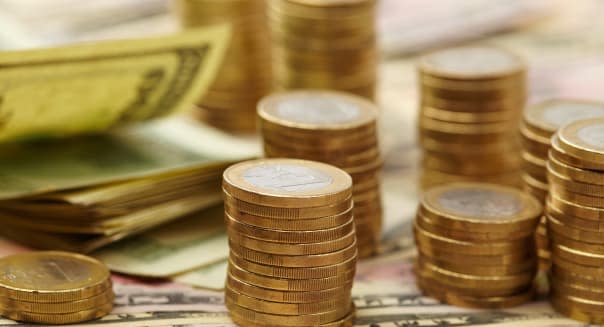5 Predictions About Your Money and the Economy in 2014

For the last few years, uncertainty has been the overarching theme in finance. We've gone from waiting to see just how many banks would fail and whether a depression was in the cards to wondering how long the recovery would take and which political standoff might send us back into the economic abyss.
While much still remains to be seen -- the impact of the Fed's tapering plan, for example -- we can certainly make some educated guesses as to what 2014 has in store for our wallets.
Prediction 1: The Economy Will Get Back on Track
From an economic standpoint, 2014 is shaping up to be a lot like what 2013 should have been, if Washington hadn't gotten in the way. The impending midterm elections should keep Congress on its best behavior long enough to get the economy back on track by 2015, especially since a short-term debt deal is already in place, and initial news of the Fed's tapering only sent the market flying higher.
"I'm waiting for the economy to bust out," Emory University finance professor Thomas M. Smith recently told WalletHub. "The problem, however, is that everyone else is just itching for the next recession so they can say, 'See, I knew another recession was [coming]!' If companies start hiring, then the economy will begin moving into another gear very quickly."
Prediction 2: We'll Rack Up $35 Billion in Credit Card Debt
We've added $115 billion in new credit card debt to our tab since the beginning of 2011, and CardHub models project another $35 billion increase in 2014. Our societal obsession with living beyond our means clearly has to change, and it starts with simple budgeting and the realization that pre-recession spending habits are no longer sustainable without the support of the housing bubble.
%VIRTUAL-WSSCourseInline-449%According to the National Foundation for Credit Counseling, only two in five Americans have budgets and keep close track of their spending. You can't keep tabs on your spending, saving and debts when you don't know exactly how much comes in and how much goes out each month.
Prediction 3: Initial Perks Will Continue to Pay Off Big-Time
The average household has around $6,700 in credit card debt. That's the bad news. The good news is that credit card companies are continuing to offer 0 percent rates for extremely long introductory periods, enabling consumers to transfer existing debt from other cards and save money while paying it off. The best such card on the market, Slate from Chase Bank (JPM), offers 0 percent on balance transfers for 15 months and charges neither an annual fee nor the industry-standard 3 percent balance-transfer fee.
There's a lot of value on the rewards side of things, too. For instance, both the Chase Sapphire Preferred Card and the Barclaycard (BCS) Arrival World MasterCard offer $400 initial bonuses if you can meet reasonable initial spending thresholds. The Club Carlson Premier Card -- issued by US Bank (USB) -- offers up to 18 free hotel nights under the same type of arrangement, and you can score two round-trip domestic flights with the Frontier Airlines Card. All of these offers are among CardHub's picks for the Best Credit Cards for 2014.
Prediction 4: Obamacare Will Be Front and Center
Regardless of how you feel about health care reform and its current trajectory, it's clear that Obamacare will have a major impact on all of our lives. For some, it will mean lower costs or coverage where none existed before. For others, it will mean higher premiums or paying for other states to expand Medicaid.
%VIRTUAL-article-sponsoredlinks%In the long-run, the law could either prove a drain on the economy or a transformational success. The point is, we're in for some changes in 2014 as far as health care is concerned, and we all better get acquainted with the new environment if we want to minimize costs and avoid unnecessary hassles.
Prediction 5: The Stock Market Will Continue Setting Records
The stock market soared in 2013, with the Dow Jones Industrial Average setting all-time highs 52 times, and both the S&P 500 and the Nasdaq returning to levels not seen since the '90s. The question is whether that can continue in 2014 or if a big correction is in order.
The finance and stock market experts we've consulted recently have mixed opinions on the matter, but the general sentiment and the fundamental data indicate room for growth. Bonds will take a while to become attractive again, and with the economy improving, consumers will have more money to save. Company balance sheets also stand to improve, especially as cash reserves begin to generate more interest revenue. While investors should tread carefully as always, there's reason for cautious optimism in the 2014 market.
Now that you have a better sense of this year's economic landscape, it's time to devise a plan of attack for improving your finances. So make those new year's resolutions ... and stick to 'em!
Odysseas Papadimitriou is CEO of the personal finance websites CardHub and WalletHub. He previously served as a senior director at Capital One.

